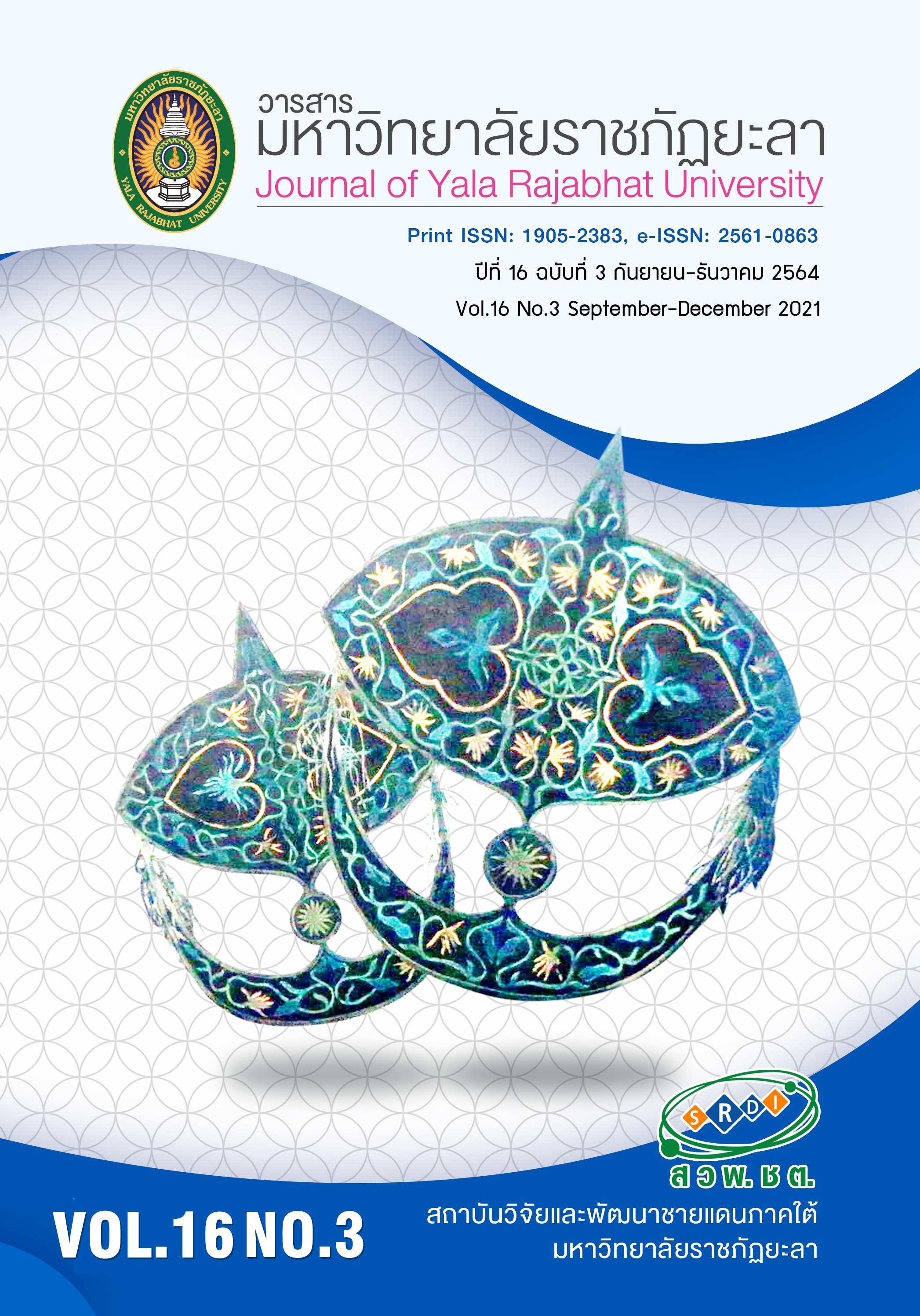แนวทาง แนวทางการจัดกิจกรรมค่ายภาษาอังกฤษตามกรอบมาตรฐานสากลที่ใช้วัดระดับความเชี่ยวชาญทางภาษา (CEFR)
Main Article Content
บทคัดย่อ
บทความวิชาการนี้มีจุดมุ่งหมายเพื่อนำเสนอแนวทางการจัดกิจกรรมค่ายภาษาอังกฤษตามกรอบมาตรฐานสากลที่ใช้วัดระดับความเชี่ยวชาญทางภาษา (CEFR) การจัดกิจกรรมค่ายภาษานี้ที่ไม่เหมือนการเรียนในห้องเรียนโดยปกติ เพราะเป็นการเรียนที่เน้นปฏิบัติให้ผู้เรียนได้เรียนพร้อมเล่นร่วมกับผู้อื่น ด้วยกิจกรรมเกมที่หลากหลายอย่างสนุกสนาน โดยผู้เรียนต้องได้รับความรู้และประสบการณ์ผ่านเนื้อหา และสื่อการเรียนรู้ที่มีเนื้อหาความยาก ง่าย ในระดับที่เหมาะสม โดยการใช้กรอบ CEFR เป็นตัวกำหนดในการจัดกิจกรรมค่ายภาษาอังกฤษนั้น ช่วยให้ผู้ดำเนินกิจกรรมสามารถวางแผน เตรียมหัวข้อเรื่อง เลือกเนื้อหา และสร้างสื่อการเรียนการสอนตามระดับความสามารถของผู้เรียน อีกทั้งเป็นเกณฑ์วัดและประเมินระดับความสามารถทางภาษาอังกฤษของผู้เรียนได้ตลอดการดำเนินกิจกรรม และที่สำคัญยังช่วยกระตุ้นให้ผู้เรียนสามารถใช้ภาษาอังกฤษในฐานกิจกรรมตามกรอบ CEFR อย่างเป็นมาตรฐาน
Article Details
บทความ ข้อมูล เนื้อหา รูปภาพ ฯลฯ ที่ได้รับการเผยแพร่ในวารสารมหาวิทยาลัยราชภัฏยะลานี้ ถือเป็นลิขสิทธิ์ของวารสารมหาวิทยาลัยราชภัฏยะลา หากบุคคลหรือหน่วยงานใดต้องการนำทั้งหมดหรือส่วนหนึ่งส่วนใดไปเผยแพร่ต่อหรือกระทำการใดๆ จะต้องได้รับอนุญาตเป็นลายลักษณ์อักษรจากวารสารมหาวิทยาลัยราชภัฏยะลาก่อนเท่านั้น
เอกสารอ้างอิง
Bowen, T., Rogers, M., Knowles, J. T., & Knowles S. T. (2014). Open mind level 2. Thailand. Macmillan Education, 69-78.
EF Education First. (2019). Ef english proficiency index. Switzerland. n.p., 6-49.
Foley, J. A. (2019). Adapting cefr for English language education in asean, japan and china. The New English Teacher, 13(2), 101-117.
Kositchaiwat, S. (2013). Development of an English camp training program to enhance english speaking skills, English camp activity knowledge and social skills for english major students, Faculty of Education, Silpakorn University. Veridian E-Journal, SU, 6, 430-439. Retrieved from: https://he02.tci-thaijo.org/index.php/Veridian-E-Journal/article/view/28386 (in Thai)
Kotchasit, S., Indrasuta, C., & Suwamaprut, T. (2017). Valaya Alongkorn Review (Humanities and Social Sciences). English language learning management for learners in the period of thailand 4.0, 7(2). 176-185. (in Thai)
Larsen, R. W., Larsen, P. K., Sangkamallig, G., Moonpo, P., & Sangway, S. (2016). English day camp activities for valaya alongkorn rajabhat university under the royal patronage mathematics teacher education English program results. Journal of Curriculum and Instruction Sakon Nakhon Rajabhat University, 8(23), 91 – 96.
Macmillan. (2012). New inspiration and the common european framework. Retrieved from http://www.macmillaninspiration.com/new/files/2010/07/CEF-mapping-level-21.pdf, p.1-6.
Pundee, M. (2017). Teaching EIL: more proper English language teaching paradigm in thai context. Journal of Education Silpakorn University, 15(2), 41 – 52. (in Thai)
Sangvatanachai & Woralap. (2013) Response-stimulating English camp activities. Khon Kaen University, Thailand. In Tangkiengsirisin, S. (Ed), The Foreign Language Learning and Teaching International Conference (p.463-470). Bangkok: Language Institute of Thammasat University.
Taniyapon, J. (2017, April-June). Camped out. Traidhos Aquarterly Magazine, 9(3), 18.
Trim, J. (2011). Using the cefr: principles of good practice. United Kingdom: Cambridge University Press.
Ur, P. (2012). Vocabulary activities. United Kingdom: Cambridge University Press.
Waichompu, N., Plianbumroong, D., & Nawsuwan, K. (2019). Active learning: problem based-learning in the 21st century. Journal of Yala Rajabhat University, 14(1), 149–159. (in Thai)
Watcharajinda, A., Buenner, S. P., & Jingwangsa, P. (2015). Needs towards English camp of junior-high school students in the lower southern provinces. 7th International Conference on Humanities and Social Sciences “ASEAN 2015: Challenges and Opportunities”, (p.11-26), Songkla: Prince of Songkla University.
Yiemkuntitavorn, S. (2017). English Instruction through Information and communication technologies in 21 century. Journal of Rangsit University Teaching and Learning, 11(1), 123-134. (in Thai)
Yiemkuntitavorn, S. (2012). Fundamental knowledge of pronunciation for English teachers. Bangkok: Chulalongkorn University Bookcentre


